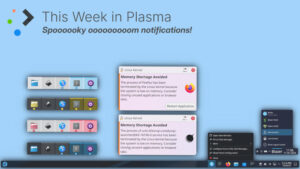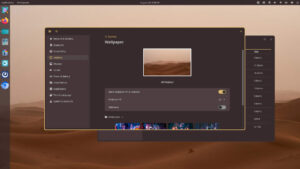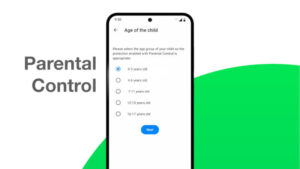
Linux has won the desktop wars and Tux now represents the dominant desktop operating system. We’ve been in this position for a while now. The reason many of us haven’t recognized it is because this win doesn’t look anything like we thought it would. When wishes come true, they’re rarely what we envisioned.
To make my point, I’ll take us back to 2006.
Just like now, in 2006 the FOSS press was busy at work asking, “Will this be the year for Linux on the desktop?” Let’s start by looking at what we meant by “desktop” in those days, because what we really meant was the personal computer.
Certainly that included the traditional desktop, the cumbersome machine that plugs into a wall and is anchored to a particular location within a home. But we also meant laptops and notebooks, which serve the same function as desktops just somewhat more conveniently. Probably included in the mix would be workstations, which are basically just desktops being used in business environments. What wouldn’t be included would be rack mounted servers, mainframes, supercomputers and other types of computing where Linux already dominated.
From the 1990s through 2006, when we talked about our desire for Linux to get traction, we were talking about increasing the use of Linux on devices used to do word processing, surf the web, read and write email, manipulate images–all of the things we were used to doing on our personal computers. Many of us rightly felt that the elusive “year of Linux” was an inevitability, that eventually Tux would get discovered by John Q. Public. Not only was Linux the best technology, certainly superior to Windows, it’s licensing made it free. I trust I’m preaching to the choir here and don’t need to explain what I mean by software freedom.
Then came 2007 and the introduction of the iPhone, which was really a powerful pocket computer that doubled as a telephone. Soon after that came Android, the Linux based operating system that’s also used on powerful computer phones–the keyword being “computer.”
For some reason, we decided these new uber smart smartphones belonged in a category by themselves. Although Android quickly went to the head of the class, we didn’t count it in our quest for Linux popularity. Indeed, we haven’t considered these devices to be personal computers at all, even though they’re used to do word processing, surf the web, read and write email, manipulate images… Do these uses sound familiar?
We lump phones and tablets into one classification, where Linux and Apple are way ahead of the game, and put desktops and laptops into another class where Windows dominates, although both the Chromebook and Mac are offering credible challenges.
This distinction is artificial. People interact with their smartphones and their tablets in exactly the same way as they do with the tower, keyboard and monitor in their homes. Desktop, laptop, tablet and phone are different versions of what are essentially the same thing.
There are differences, to be sure. As a writer, I’m probably never going to write articles for FOSS Force on my Android phone–although I could, albeit somewhat awkwardly. For the time being, I’m not going to be writing many articles on tablets either. Typing on a screen is too cumbersome.
That’s subject to change, however. Sooner or later some genius at Samsung or HTC will realize that the tablet is just another form factor for the personal computer and start including two or three mini-USB ports on their offerings so they can begin marketing useful peripherals like cute little portable keyboards. That’s happening already with such offerings as “convertible” laptop/tablet combos, tablets with docking stations and Microsoft’s Surface Pro, the latter being available with a keyboard cover.
It’s all personal computing.
The quick growth of mobile devices only means that we want to be wired and connected wherever we go. We don’t want to wait until we get home to use Wikipedia to find an answer to resolve a friendly argument. We don’t want to spend too much at Best Buy because we were unable to check the price on the same item at Walmart. Nor do we want to have to wait until the end of the day to check-in with our friends on Facebook.
We’ve won this war. It just doesn’t feel that way.
That’s because Android and Chrome OS may be Linux, but they’re not the Linux we’re used to using. They’re not as open. They’re not easily modified, except by dedicated geek hackers. As Richard Stallman would remind us, they’re not GNU/Linux. It seems RMS was right all along; not all Linuxes are created equal.
This, too, is about to change. It won’t be long until Ubuntu releases a version of their OS that will run on both traditional desktops and on smartphones–effectively offering GNOME on mobile. I have little doubt that soon afterwards we’ll see Unity on a tablet, although Shuttleworth insists there aren’t any plans for that.
What if you’re like me and prefer using KDE over GNOME? There’s KDE mobile in the works. By the time it’s ready, you should easily be able to switch desktops on a tablet running Ubuntu, just as you can now switch desktops on your home computer.
Microsoft has the right idea with the Surface Pro–they just have the wrong operating system and an implementation that’s not compelling, no matter how cool and hip they try to make things seem with their lame dancing youth commercials. But they do understand, evidently, that the major difference between the tablet and the traditional desktop is in portability.
They’ve done one thing very right. A small, usable and easy to tote keyboard is a perfect pairing for a tablet. It doesn’t have to double as a cover, as Microsoft’s does, or be an expensive Bluetooth device, as we see being marketed for the iPad. All we need is an inexpensive carry-along keyboard that stays in the car until needed, which probably won’t be that often as it’s unnecessary for checking mail, scoping-out Facebook, watching videos or reading.
It’s time for us to pay attention. Linux now owns personal computing in a very real sense. That means it’s ours to lose if we don’t stay ahead of the curve.
Christine Hall has been a journalist since 1971. In 2001, she began writing a weekly consumer computer column and started covering Linux and FOSS in 2002 after making the switch to GNU/Linux. Follow her on Twitter: @BrideOfLinux








Android in not Linux per se.
Also read this to understand how gravely you are mistaken: http://bit.ly/gBOiz6
You make a bold claim, but it all depends on perspective. I think that it has won in many respects, but popularity is not one of them. It has won in innovation, usability, flexibility, power, etc. It all depends what you use as your metric.
Linux is only a Kernel…if Linux kernel is installed in a device then use Linux, simple!
I have a $25 bluetooth keyboard for my nexus seven. Its small but faster to enter data than via the on screen keyboard. Think wireless connections for data make lots of sense. The only time you need a physical connection is if the keyboard can also power the tablet – big batteries cost $$$ Given the battery life on tablets a good inexpensive keyboard make lots of sense.
You really lost me with (a major fuck-up, a single point of failure) nice language there. You had some good points but to be honest half these issues plague Windows and OSX to one degree or another and they are not free.
If Linux now means desktop ads, tracking, GPS surveillance, systems shipped without firewalls, no user privacy, closed systems forcing users to a “cloud” that offers limited protection and less responsibility for the data it holds… sure… whatever…
Take the “Linux per se” out of Android and what’s left… Just what I thought. You can bitch and moan all you want that Linux has nothing to do with Android but that fact speaks otherwise. Have a nice day Anonymous.
Since when are traditional desktops “cumbersome?” Sure, they’re heavy and you can’t easily move them, but they’re certainly not slow and ponderous.
I built mine late last year, it has a 3.10GHz 8-core processor, 8GB DDR3, a 1GB video card and a 1TB HDD. I can play any game under the sun on it and do 3D CGI and all kinds of stuff at very fast speeds. Show me a mobile computer that can come even remotely close to that. My laptop and tablet certainly can’t touch it.
Other than that, I mostly agree with you. People who say Android isn’t Linux are deluding themselves. (or simply doesn’t know what they’re talking about) Linux is a kernel, plain and simple. Android is built on said kernel, therefore it’s Linux. Just because it doesn’t look or act like the more familiar Gnome, KDE, XFCE and LXDE desktops (or the others) doesn’t make it any less Linux. Once people wake up to that idea, they’ll realize that Linux is winning in a big way. Android is flourishing and that’s great for Linux.
@Chris I wouldn’t trade my traditional desktop for anything. I didn’t mean cumbersome to use, but physically cumbersome in the sense that it’s heavy and not portable. According to “The Free Dictionary,” the first definition of the word is “Difficult to handle because of weight or bulk,” which is all I meant. Sorry for any misunderstanding! And thanks for your input.
@ Chris Hall: Got it, my misunderstanding. Thanks for the clarification, though.
True, they’re not very portable, especially mine. I have an Antec 600 gaming case, which is fairly large and definitely cumbersome using the first definition of the word. 😉 Fortunately, I only have to move it when I clean or when I need to do something hardware related.
I would have to agree with this article, but I don’t think it’s the “phone-wars” that gives us the victory. Since the early 90’s Linux has been THE server OS for backend systems, and we’ve all “heard” their names in casual IT speak (SuSeLinux…Oracle….RedHat….Debian etc.) and those aren’t just for the hackers…but there are offerings from HP…..DELL…..IBM…etc.) I don’t think there’s an actual “need” for Linux to “win” the desktop / phone war….its already done! We may not have the flashy adverts as the other big companies…but almost EVERYONE know that Android DIDN’T come from Apple OR Microsoft! I also agree that if they’re not careful they might be toppled by some other company making a daring move in the technology industry, but when you’re the BEST at something?…and everyone else is following YOUR act?…how can you really feel threatened? just my two cents on the matter….
If we classify Android as ‘linux on the desktop’ then I have no reason to say that Linux should be avoided because it is as malware ridden as Windows. 30% of malware doesn’t get detected by Google. Its even worse if you use APK files from a third party… I even own an Android, Why does Opera need my phone call list?
Linux has never had the desktop and I’d be surprised if they ever will.Until PC manufactures make it the default OS,Linux will always be secondary.On phones and servers that’s a different story.Linux is a good OS but it’s far too fragmented and sadly if a company ever did decide to go w/a desktop it would probably be Ubuntu.
@Gene Novak: I would have to disagree with you on the last part of your comment….I have worked with three different companies within the last 15 years, and they ALL used Linux…but they didn’t ALL use Ubuntu, as a matter of fact, Ubuntu wasn’t used in ANY of them, it was CEntOS….Fedora….and openSUSE. I have Ubuntu installed at home, and most of th4 people that I know use it….use it at home, it’s not as much of a “corporate” distro as some of the others, that’s not to say that it isn’t used at all, I’ve had my fair share of being surprised when I’m called into a company to troubleshoot their server only to find out its Ubuntu Enterprise Server! As far as I’m concerned, Linux is a different animal from Windows & Apple, whereas those companies try to be “All Things To All People”, Linux actually ACHIEVES this goal! You can install Linux as a server…a “sniffer”…a directory….a workstation….a standard desktop….a terminal client, the list goes on and on. Some people feel that because Linux is “free” as in beer, that it can’t be good quality, but the view I take is: with SO any people, from SO many different places, working on SO many different facets of just ONE distro, how can it POSSIBLY be that BAD? If anything I consider software that is built, and developed in this fashion a more robust, more stable, more reliable product that some commercial offerings, but I realize that when I tend to go off on a tangent it sounds like I’m bashing Windows or Apple…which is not my intention, so I’ll just shut up from now on!..LoL! Cheers!
@Eddie Jetson It seems more to me that you’re cheerleading Linux rather than bashing the other guys–and that’s a good thing!
This is, excuse me, arbitrary and ridiculous intellectual masturbation.
I’m so hard in my statement because this article turns things upside down.
Unfortunately (I use Linux/Unix only) the situation is quite dfferent on the desktop which is the real ground to make measurements.
We still do not have “the Linux desktop” (as opposed to the windows desktop) but rather a mess. Gnome 2, gnome 3, gnome with cinnamon, mate, etc., kde, Unity. And all of them based on X which is a problem by itself.
While wayland looks promising it’s way too young to play any role.
Actually Linux has conquered many areas and important ones like the server world. And, yes, one can happily use Linux on the desktop. But there is no “Linux desktop”, nothing to put against windows but a fragmented space full of choices with more or less problems and buts.
Saying Linux has won the desktop war is like saying some 16-bit Microcontroller is the leading cpu just because it’s in gazillions of tiny devices.
We don’t need propaganda or heftily construed victory declarations. We need a Linux desktop that offers the features, the technology base and the choices for a bright Linux future.
@ Mr. Pragma: I would agree with you, but I would also counter that with this….that most people who DO decide to make the “jump” to Linux usually have a pretty good idea of what DE desktop environment they want to use, and although there’s no ONE CENTRAL MAINLINE desktop interface for ALL to use, well that right there is what makes Linux so appealing, granted if there WERE just one “main” and non-distribution-centric desktop environment that any and all could use, it would make for a more appealing option for those looking to jump ship from Windows…but the downside to that is…you end up falling into the same “camp” as Windows, where someone else dictates what your desktop should be, and although I love Gnome both 2..and 3…and MATE and Fluxbox, I would drop then ALL in a NY MINUTE if someone else INSISTED that it was what my desktop should be! I didn’t leave Windows just to get prettier desktop wallpaper, but because the underlying theme with it seemed to be that while I could change a FEW things, I was unable to change EVERYTHING, I don’t like being pigeon-holed, not by the music industry, (I play guitar!) and no I’m not looking for a record deal, but every now and then someone will hear my stuff and INSTANTLY assume it’s “blues”….or “jazz”…or”rock”…or “reggae”….when in all actuality it’s NONE of these…and it’s ALL of these rolled into one. I like being able to switch my DE when I choose, to WHAT I choose! I don’t push Linux down anyone’s throat, nor would I like it if someone did it to me. Besides in all actuality, this can only apply to the home user, because even in those corporate environments that DO use Linux on their desktops, I’ve been handed a laptop, or sat down in front of a desktop and TOLD that THIS is the distro of Linux we’re using…and THIS is the desktop environment, and I had no choice but to use it, and while there’s no “standard” for all offices that use Linux, there IS one principle that transmutes them all: “We’re a business, we use Linux not Windows, these are our goals, and these are the tools we’ll use to reach and achieve them” in the end it really only boils down to that. In closing, the reason there’s no “standard” Linux desktop, is because THAT is what makes USING Linux an “experience” to be unfettered by the rules and mandates of some person or a group of people who have never met you, who don’t know your demeanour….your likes…your dislikes….or anything else relevant, dictating what you should and / or should not use on your desktop.
@Chris Hall: I try to avoid the whole “Linux-Is-Better-Than-Windows” battle. I’ve been a Windows LAn Admin since thec days of Windows 98 / NT 4.0…..and I have seen the animal in ALL its ugliness…from Exchange servers losing critical contact data, to Web servers going “dead’ in the HEAT of customer / client activities. I don’t promote Linux by word of mouth, I usually like to let the laptop that’s running Fedora 18 impress with it’s own skill. I have nothing against Microsoft OR Apple for that matter, but being burned time and time again, and then making a switch and NOT getting burned any MORE?….well if this was one of those MasterCard commercials it would sound something like this:
Lost data from file distribution server?
$80,000
Amount spent in pencils filling out new job applications?
$3.50
Working in a new position that uses Linux on both the servers and the desktops?
PRICELESS!…LoL!
Android and Google are defining the future of Linux . Each distrobution will be faced with the fact that we have now moved to a mobil group of people and are no longer confined to a place in our home to due what traditionaly has been known as computing. I foresee and in fact see it now, where the smaller linux distribution are dropping out of sight while the front runners are either adapting to this change with mobile support or are in the planning prosses to do so. The smaller distrobutions i have tested can’t or won’t recognoze mobile devises i currently have today while the front runners my devices work fine. Change is in the air who will be left standing will be the question. The face of Distro Watch will be forever change.
@syncdram: I agree, but I don’t think the smaller distros are ignoring mobile computing on purpose, I think it’s because of a lack of funding and other types of support which a “company” would need to keep going.,…then there’s the fact that a lot of the smaller distros don’t have the “manpower” to crank out the necessary code to transform their OS from the desktop to mobile computing…..but then again what do I know?…maybe they ARE just ignoring mobile computing!…LoL!